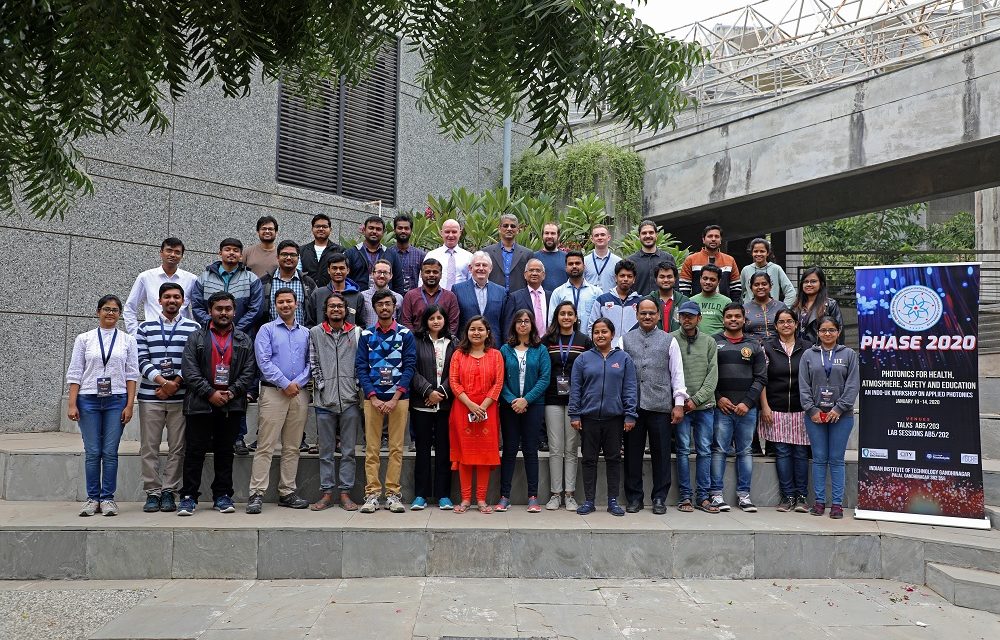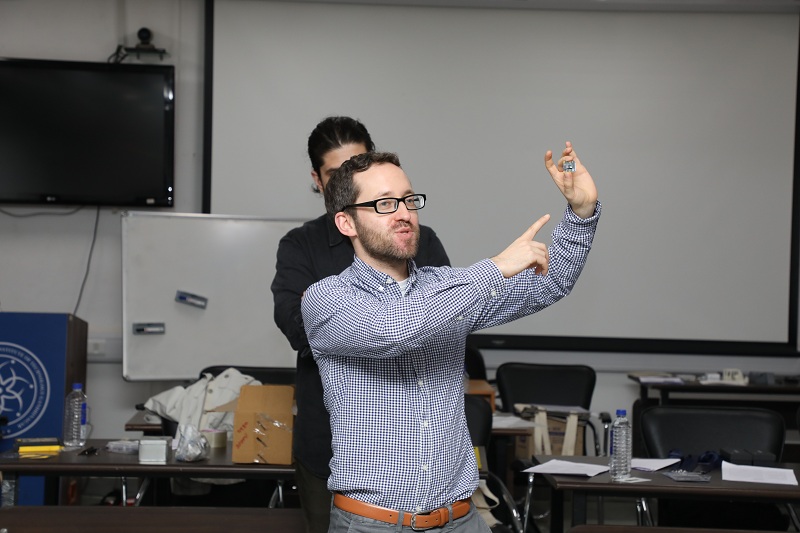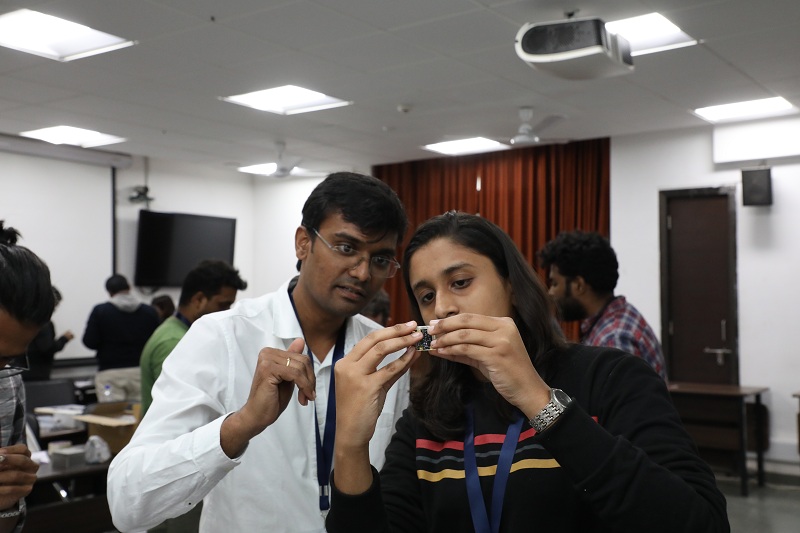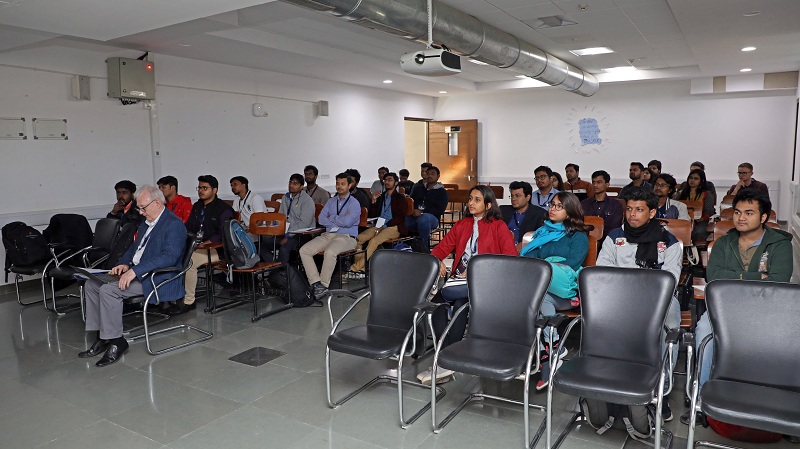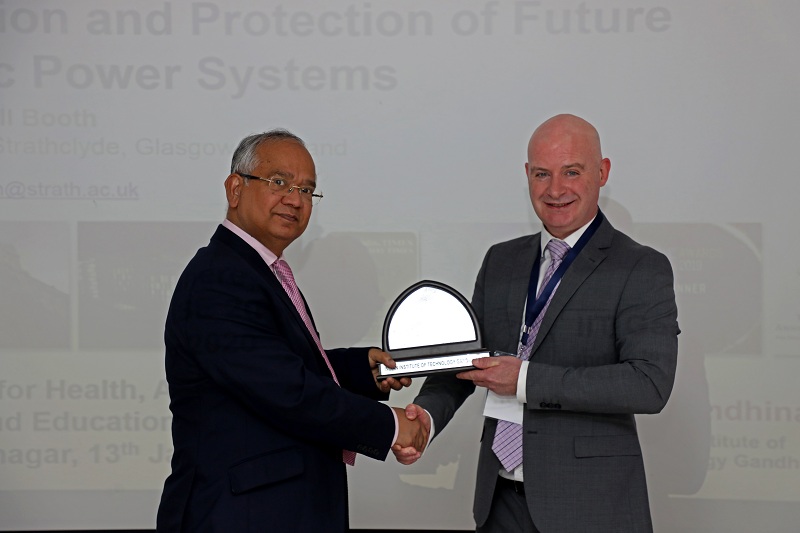An Indo-UK Workshop on ‘Photonics for Health, Atmosphere, Safety and Education’ (PHASE 2020) concluded on January 14, 2020, at the Indian Institute of Technology Gandhinagar (IITGN). It was sponsored by the Royal Academy of Engineering, UK and was organized jointly by Dr Arup Lal Chakraborty (IITGN), Prof Ken Grattan (City University London) and Dr Ralf Bauer (University of Strathclyde, Glasgow). The workshop, which started on January 10, 2020, provided the participants with world-class knowledge on laser-based sensing and imaging through expert lectures and demonstrations, along with a unique immersive and hands-on experience of working with a diverse set of photonics-based activities in the Photonic Sensors Lab at IITGN.
PHASE 2020 aimed to provide a platform for conversations between early- and mid-career Indian researchers/academics and thereby strengthen the photonic sensors community in India. It also intended to engage with industrial participants and sensitize them about the huge worldwide impact of photonic sensor technologies, the expertise available in Indian academia, and the industrial challenges that can be addressed through photonics.
A total of thirteen international experts from the City University of London, UK; University of Strathclyde, Glasgow, UK; S N Bose National Centre for Basic Sciences, Kolkata; Physical Research Laboratory, Ahmedabad; and IIT Gandhinagar mentored the participants throughout the workshop to carry out short time-bound projects using state-of-the-art optical technologies.
They worked on experiments such as tunable diode laser spectroscopy for high-sensitivity gas sensing; measurement of gas concentration, pressure & temperature; synthesis and characterisation of plasmonic nanoparticles; 3D-printed optical imaging; biomedical imaging and image processing approaches.
About 40 participants from India and abroad, including undergraduate, masters and PhD students, as well as researchers and industry professionals attended the five-day workshop and gained knowledge about the cutting edge research being done in the field of photonics.
Sharing his experience, Dr B M Patil, Assistant Professor in the Department of Chemistry, Dr Homi Bhabha State University, Mumbai said, “My background is in chemistry but I wanted to know the application part of photonics to gas sensing properties. The workshop has been an excellent experience. I gained knowledge about how industries and academia can work collaboratively. This workshop will be beneficial for my research as well as my students.”
Surbhi Jain, a PhD student in optics from the University of Delhi shared her thoughts on attending this workshop and said, “This workshop proved to be a perfect platform that opened a path for me what I can do in my field in the future. I came to know that photonics is not just a single subject but it involves a lot of other things like image processing, artificial intelligence etc. Through highly informative talks, useful practical sessions, and interaction with the speakers, we got to know what we need to do to make a product market-ready. I also enjoyed my stay at the beautiful IIT Gandhinagar campus.”
The aim of the workshop was to bring together a group of young students and let them work on interdisciplinary applications in a modern photonics laboratory with mentorship provided by experts from India and some very eminent academics from abroad. We wanted to show the students that laser-based techniques are extremely versatile and easy to use. Our lab believes in the saying “The work will teach you how to do it”, and the workshop was conducted in that same spirit. It was also the intent to bring together on a common platform, a group of early-career researchers with diverse research interests from IITGN and other institutes to see if interesting research collaborations might emerge.
Dr Arup Lal ChakrabortyAbout Photonics and its applications:
Photonics is defined as the science of using light to generate, detect and modulate photons. Photonics involves cutting-edge uses of lasers, optics, fiber-optics, and electro-optical devices in numerous and diverse fields of technology, for instance, aerospace, agriculture, biomedicine, construction, energy, information technology, chemicals, transportation, homeland security, solid state lighting, among many others.
Photonics finds application everywhere; in consumer electronics (barcode scanners, DVD players), telecommunications, health (eye surgery), manufacturing industry (laser cutting, welding and machining), defense and security (remote sensing, infrared camera) and even in entertainment (laser shows). Photonics was used even in Mars mission for detection of methane gas.

